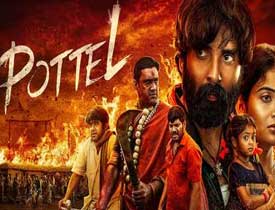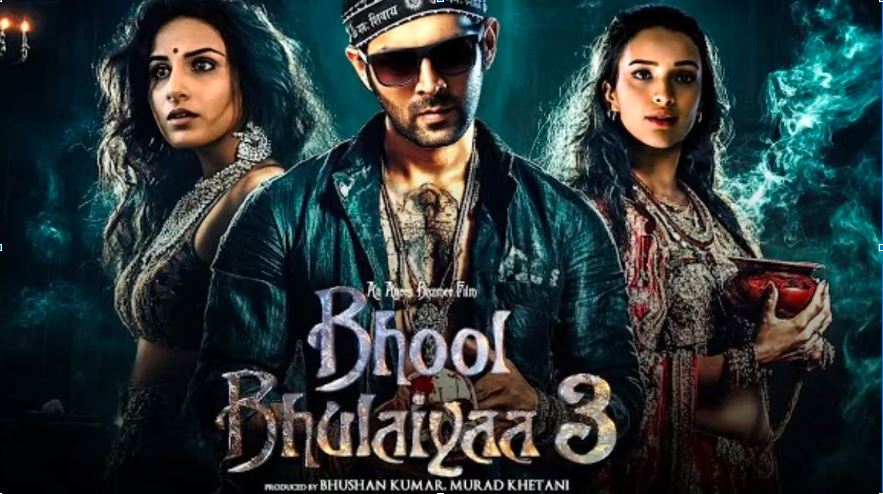Pottel Movie Review: A Stirring Drama on Education and Social Justice

- Admin 21
- 05 Nov, 2024
The Telugu film *Pottel*, directed and written by Sahit Mothkuri, is a gripping narrative that delves deep into the pressing issue of education as a weapon against oppression, portraying its pivotal role in enhancing healthcare and overall quality of life. Set a few decades ago in the Vikarabad region of Telangana, the themes explored in the film remain strikingly relevant today, showcasing the timeless struggle for equality and justice.
The film boasts a commendable cast, including Yuva Chandra Krishna, Ananya Nagalla, and Ajay, along with a talented group of child actors, all of whom lend their performances to support the director's ambitious vision. One of the most poignant aspects of *Pottel* is the way it evokes sympathy for a father who relentlessly fights to educate his daughter, often putting himself in perilous situations. However, while the emotional core of the narrative is compelling, it is tempered by an overreliance on melodramatic tropes that may leave viewers feeling uneasy, particularly due to the frequent graphic violence directed toward women and children.
At the heart of *Pottel* is a fierce confrontation between two significant characters: Patel (played by Ajay), a tyrannical figure who exerts control over the village through the exploitation of religious rituals—including animal and human sacrifices—and Gangadhar (Yuva Chandra), a humble goatherd who recognizes education as a crucial means to combat inequality. Their ideological clash is established early on, with the opening sequence illustrating Patel's brutal nature while Gangadhar showcases his desperation to save his daughter, revealing the personal stakes that drive the narrative forward.
Patel’s backstory is depicted as reminiscent of the archetypal representations in mass masala films, where his character serves as an ego-driven oppressor, surrounded by women who are largely silent victims. The portrayal of the villagers is also broad-brushed, as they mostly accept Patel's authority without question, obediently adhering to outdated ritualistic beliefs.
What elevates this story is its exploration of the significance of education, exemplified by a crucial incident involving a father and his two sons. A foreboding warning sign posted near a well, which could have saved a life had anyone been able to read it, starkly highlights the dire consequences of illiteracy. The father is acutely aware of the necessity for education, yet he remains oblivious to the formidable systems of oppression he must confront. Additionally, the societal structure in the village is rigidly controlled by upper-class Patels, who systematically deny access to education to those from lower castes, further perpetuating the cycle of ignorance.
Sahit Mothkuri effectively conveys the message that societal change is a gradual process, often requiring multiple generations to bring about genuine enlightenment. Interestingly, Gangadhar distinguishes himself from the herd mentality that pervades the village, showcasing critical thinking in a community steeped in blind compliance. He names his daughter Saraswathy, a nod to the goddess of learning, despite understanding the formidable challenges she would face in receiving an education in such a restrictive environment. The narrative is drawn deeper into symbolism with the inclusion of a male goat—or *pottery* in Telugu—which serves as a motif reflecting the story’s ties to ritualistic practices. As Gangadhar’s struggle intensifies, he gains the steadfast support of his wife Bujjiamma (Ananya Nagalla). Initially, I found myself curious about what sets Bujji apart from the other women in the village, a question that the film gradually addresses through her character's development.
The film’s fundamental strength lies within its impactful premise regarding education's vital importance, but it also reveals weaknesses by leaning heavily on melodramatic elements. The brutal treatment meted out to men, women, and children who dare to speak out against injustice is a recurring theme, and the frequent violence displayed—whether it be a woman being physically assaulted or a child being thrown to the ground—serves more as a device for emotional manipulation than genuine storytelling. Despite the film's flaws, pockets of hope appear intermittently. Moments such as a teacher’s transformative journey or a child’s newfound ability to read an overlooked pamphlet symbolize the potential for change amidst despair. Nevertheless, the narrative often reverts to tired melodrama, which can detract from its overall impact. The performances by Yuva Chandra, Ananya Nagalla, and Ajay are noteworthy, effectively anchoring the film's emotional weight. The musical score by Sekhar Chandra and the cinematography by Monish Bhupathi Raju works in harmony to vividly depict the stark realities of the arid region and the harsh lifestyle endured by its inhabitants, thereby enriching the visual storytelling. Overall, had *Pottel* chosen to lessen its focus on amplifying Patel’s brutality and instead pursued a more nuanced storytelling approach, it would have transformed into a compelling and underexplored narrative from India’s rural landscapes, offering audiences an insightful glimpse into the dynamics of education and social justice.
Leave a Reply
Your email address will not be published. Required fields are marked *







